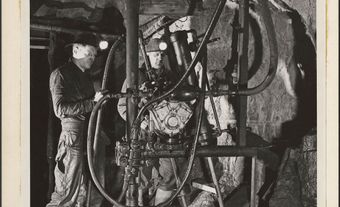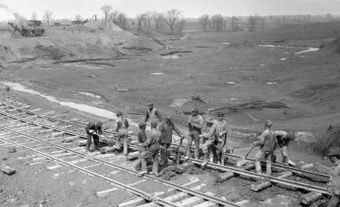
Industrial Workers of the World
Industrial Workers of the World (popularly known as "Wobblies"), a REVOLUTIONARY INDUSTRIAL UNION fd 1905 in Chicago. The IWW's rapid expansion in the Canadian West demonstrated the influence of American labour ideology on the region's labour movement. Wobblies were mostly unskilled, low-status migrant workers ("blanket-stiffs") - miners, loggers, navvies and harvesters - who were recruited to the West primarily from southern and eastern Europe and were brutally exploited in the booming economy. The IWW doctrine which attracted them was a peculiar form of syndicalism (an international doctrine based upon the primacy of industrial unionism and the use of the general strike in the settlement of class struggles). Wobbly syndicalism was essentially pragmatic; it advocated the organization of all workers into one body and supported direct action as the only form of protest open to immigrant workers, who were excluded from the electoral process.IWW propaganda was disseminated primarily in street meetings. In 1912, when Vancouver authorities tried to ban street demonstrations, the Wobblies started and won a spectacular free-speech fight. Soon afterwards the IWW led 7000 workers out on strike against the CANADIAN NORTHERN RAILWAY in BC's Fraser Valley. The Wobblies lost, and massive state repression, combined with employer resistance and economic depression, began the process of the union's collapse. The Wobblies' days of glory ended before 1914, but their syndicalist ideology was adopted by the ONE BIG UNION.

 Share on Facebook
Share on Facebook Share on X
Share on X Share by Email
Share by Email Share on Google Classroom
Share on Google Classroom


